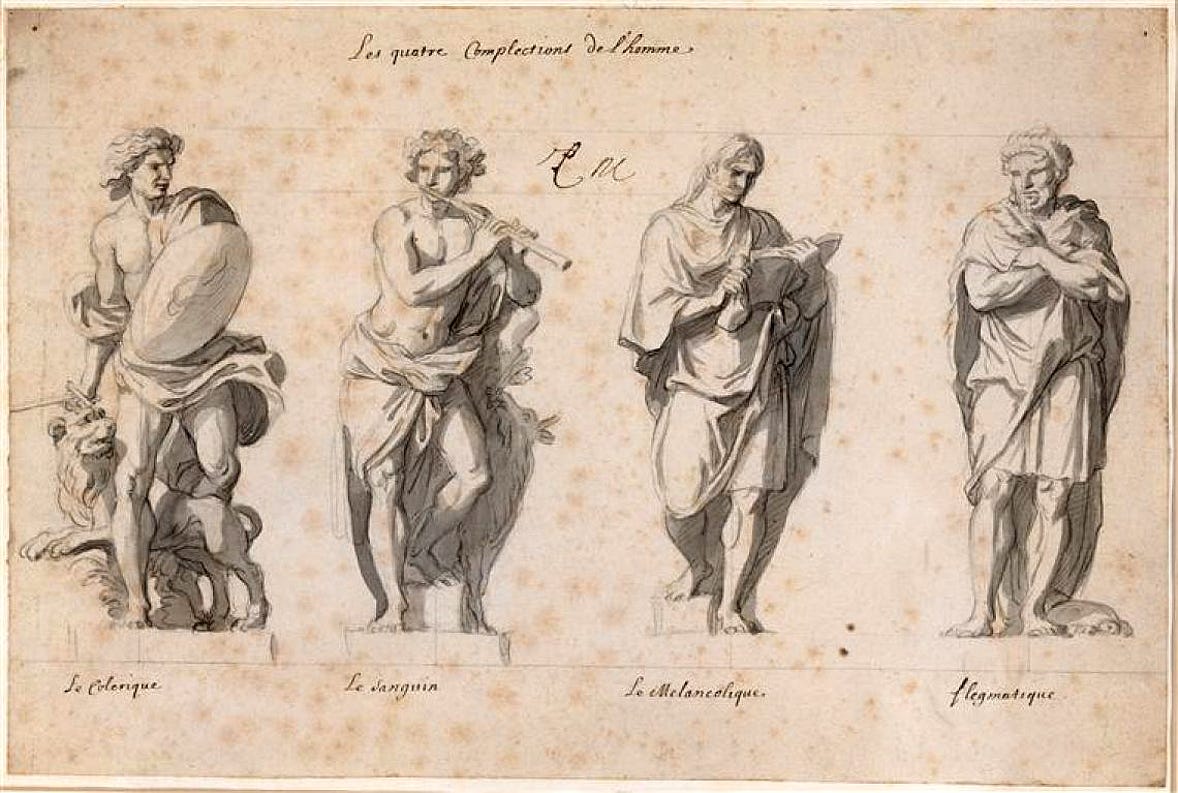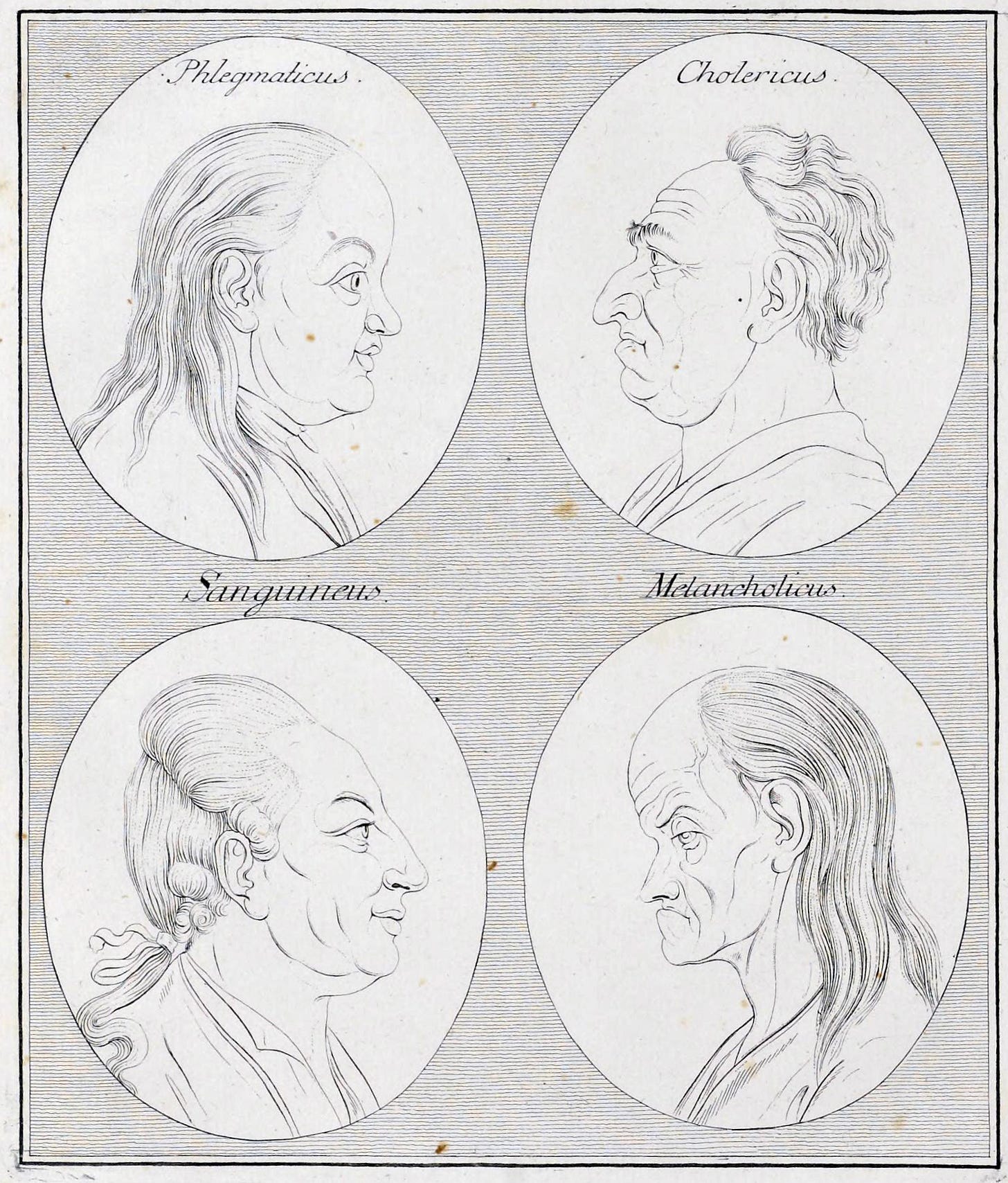An Underrated Tool to Grow in Charity
Have you heard about this theory?
God Made Us Different
There’s no discussion about the fact that each human being is an entire world. Each and every one of us was designed intentionally, perfectly crafted, and brought to life at a specific time and for a specific purpose.
For thou didst form my inward parts, thou didst knit me together in my mother’s womb.
I praise thee, for thou art fearful and wonderful.
Wonderful are thy works!
Thou knowest me right well; my frame was not hidden from thee,
when I was being made in secret, intricately wrought in the depths of the earth.
Thy eyes beheld my unformed substance; in thy book were written, every one of them, the days that were formed for me, when as yet there was none of them.— Psalm 139:13-16
God created you as a unique combination of millions of possible parts, strengths, inclinations, and tendencies. God crafted us all with care, and made each of us willingly. There is no man who’ll ever be again, no soul repeated, no reincarnation nor any possible way for another you to exist, whether in space or in time.
But we’re not just different. In fact, we are more alike than we are different.
God Made us Similar Too
Our reality is that we are children of God, made in His likeness, and that immediately means that we all share more than we usually like to admit. Because even those whose life choices have led them astray, and even those who have forgotten to honor the God that made them are still made in His image, and still are His children.
Charity is what’s required to remember this reality, and to try and see others as God would: as children of the One True God, even if they might betray Him, commit acts of evil, sin, and distance themselves from Him as much as possible.
I recently came across a theory of human behavior and personality that has helped me understand, simultaneously, just how different we all can be, but also how similar we are, which has been an amazing tool for my relationships and for my own self-understanding. True charity requires us to realize that even though others might be very different from us, they are still alike in the sense that we share the same Creator.
I’ve always been weary of theories of personality, especially those most popular in the modern world, as they are too often used as an easy way to excuse our vices.
However, this theory I’m talking about has been instrumental and has helped me grow in charity greatly, which hasn’t been the case for all the other psychological frameworks I’ve come across. I stand behind this theory not only because I’ve seen it bear good fruit in my life and the life of those around me but also because, after extensive research, it was proven to me that this theory has a lot of historical and scientific backing, not only within the Christian faith but also outside of it.
I won’t bore you with the entire chronology of how temperamental theory developed (you can read my latest book if you’re interested in a full breakdown), because I want to keep this article short and practical. I’ll explain what this theory of personality is and then explain how you can use it to grow in charity.
The Four Temperaments
The theory I’m talking about is temperamental theory. It’s an ancient but powerful framework that has guided saints, scholars, and warriors throughout history. The theory claims that there are 4 temperaments —which closely mirror personality types—, which are innate and determine a lot of our proclivities, tendencies to vices, and strengths: Melancholic, Choleric, Sanguine, and Phlegmatic.
St. Thomas Aquinas wrote about this theory, and his writings set forth his belief that while temperament can predispose a person to certain virtues or vices, grace and reason enable the individual to overcome these tendencies. This aligns well with earlier thinkers who also greatly emphasized free will and man’s ability to overcome his lower tendencies and proclivities through strengthening his character and reason.
Sanguine: Stable emotions and extroverted personality. Sociable, talkative, responsive, easygoing, lively and carefree.
Phlegmatic: Stable emotions and introverted personality. Passive, thoughtful, peaceful, controlled, reliable and calm.
Choleric: Unstable emotions and extroverted personality. Touchy, restless, aggressive, excitable, impulsive and active.
Melancholic: Unstable emotions and introverted personality. Moody, anxious, rigid, pessimistic, unsociable and quiet.
From what I’ve seen so far, most people are able to recognize their predominant temperament almost instantly. Each temperament is so unique and different from the others, that people tend to see themselves reflected very clearly in one or two temperaments, and not at all in the rest.
The goal of this article is not to do a deep dive into temperamental theory, but rather to motivate you to learn more about the 4 temperaments so you can use them to grow in charity. Here’s how you can do that.
Why This Helps You Grow in Charity
Knowing about the four temperaments allows you to understand others better, to comprehend their inclinations, their struggles and their strengths, so you can grow in charity, love, and empathy. It’s quite insane just how differently people see life.
Your temperament —as well as the other aspects of your being which make you unique, obviously— affects how you perceive every single aspect of life. The idealistic, beauty-seeking heart of the melancholic will never see a situation, a person, or a place with the same eyes as the fiery, courageous heart of the choleric. The orange sunglasses that the sanguine wears to filter everything he sees through an optimistic lens is vastly different from the blue veil that makes everything solemn for the melancholic. These are not meaningless differences, these are completely different experiences, in a life that is already at the same time vastly varied and deeply unique.
I can’t tell you how much I’ve grown in charity since understanding about the temperaments: it’s much easier to see people for what they truly are, and to forgive them for things that they do, which you might disagree with, but that simply are unique features of their temperament, very often not their fault. Your relationships will flourish when you understand the temperaments and learn to see them in others.
Your temperament is, obviously, not an excuse for poor behavior, but just as you are guilty of certain sins and vices, which you fight against, anyone you meet is fighting a battle of their own, and deserves the same understanding that you give yourself. It’s easier to be empathic when you understand why their battles are so incredibly different from yours.
As mentioned several times throughout this article, I recently published a book titled Knight, Monk, King, Prophet, which explains temperamental theory in-depth and also gives you practical ways that you can use this theory to improve your life, grow in charity, and get closer to God. It’s available here.

The book contains a complete chronology of the theory of the 4 temperaments, starting in ancient Greece and progressing until the modern day, a detailed breakdown of each temperament explaining what you should work on and what vices to look out for according to your personality, and even a test for you to find out your own temperament.
Temperamental theory has made me aware of the many things on which I need to work, and has also made me better equipped to be the friend, boyfriend, son, and brother that the people around me need.
It has taught me more about charity than any other book on the subject, and it’s been an amazing tool to understand how other people operate.
I hope this article was useful to you, and I hope you conclude, after reading more about the temperaments —hopefully in my book—, that you learned something useful for your spiritual life so that you can navigate life in a more enlightened and self aware way.
God bless you and if you do get the book, send me a message telling me how you liked it!
Thank you for reading!
If you enjoyed this post, subscribe to my Substack here:
If you enjoyed this article, check out my books.





